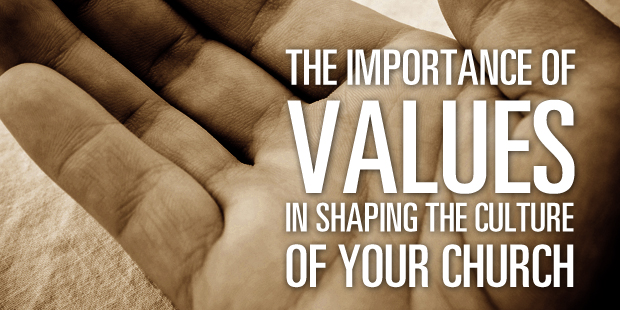
The Importance of Values in Shaping the Culture of Your Church
Our church, Victory Church in Manila, was planted 28 years ago. Steve Murrell, the founder, is an American missionary who wisely built by creating a culture of discipleship, which for the last 12 years has caused the church to grow at an annual average rate of between 22 percent and 26 percent. During our earlier years, the church had growth spurts of up to 40 percent, even 60 percent. And all of it—our past and current growth—has happened in healthy ways.
In my opinion, Steve’s most significant accomplishment lies in that the church continues to grow, even though he has transitioned out of the church’s day-to-day operations and now spends most of his time traveling in the United States and around the world to oversee other churches. Steve is a master at empowering leaders. Leaders like me, who are responsible for overseeing the church, can walk into one of our services, and no one would have any clue as to who I am because I only do two services in one of our locations. It testifies to a strong culture that has empowered multiple layers of leaders. I attribute that to the discipleship culture Steve and our leadership team have built.
Values + Vision + Language (over time) = Culture
What is culture? Loosely defined, I think of culture as something people do without thinking. Consider any culture—American, French, corporate, family or church. All consist of things the people in that culture do without thinking. For example, Americans don’t think twice about watching Sunday-afternoon football. It’s part of their culture. The French don’t debate over whether they’ll have wine for dinner. Apple executives make no bones about the value of simplicity in design and the need for excellence. Think of your own family and the things you do without thinking. Now imagine a church that doesn’t think about evangelizing people to turn them into disciples but just does it because it’s part of their culture.
All too often, churches build by focusing on mission, vision, system or process. These things in and by themselves aren’t bad. However, culture is the more powerful change agent because people will do it without thinking twice. It’s just the way they do life.
Whether it’s American, French, Apple’s, your family’s or your church’s, culture emanates from what we value, which inevitably becomes the way we see life (vision). When communicated consistently over time, what we value becomes the culture of that people group. Like all other cultures, Filipino culture is shaped by what the people value, how they see life (vision) and their language. Done over time, these factors eventually shape their culture, or the way they do life.
So shaping culture starts with what we value. When I say “values,” I’m not talking about the slogans or taglines we print on church bulletins or the words we post on the walls. Values are simply the things that are most important. As Jesus said in Matthew 6:21, “For where your treasure is, there your heart will be also.”
That’s why values are the starting point; they emanate from the heart. I’m convinced that all of the decisions we make knowingly or unknowingly are based on what we value. Consider the food you eat, the clothes you wear and the things you do. These things shape our culture. We do them and spend money or time on them because we value them more than we value other things.
At the end of the day, life is a series of value exchanges. When Christians don’t read their Bibles or involve themselves with kingdom activities, they have traded these values for something they value more.
Herein lies the role of leadership: to clearly define what is valuable; to cause these values to form the way members see life (their vision); and to relentlessly communicate these values in as many ways possible.
But instead, we often go after instant results—focusing on systems, processes and programs. We don’t want to build on culture because that takes time. What we don’t often realize is that even when we take this “immediate gratification” approach, we’re still building a culture—one that’s based on instant results.

Tags: Joey Bonifacio, Values, Vision Frame












